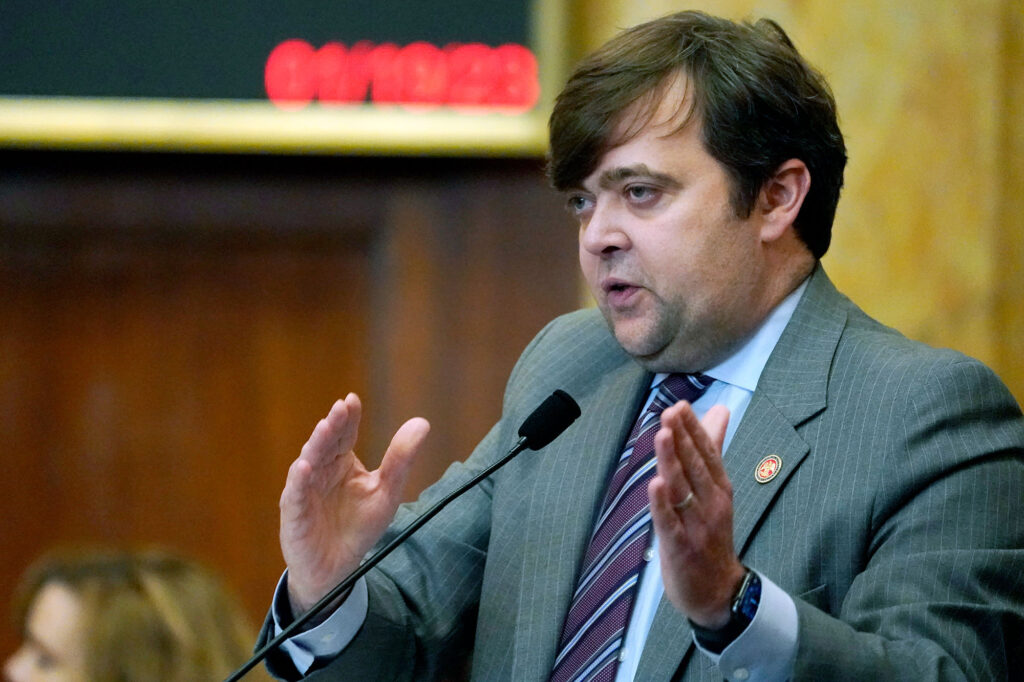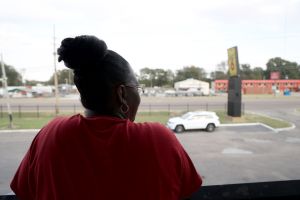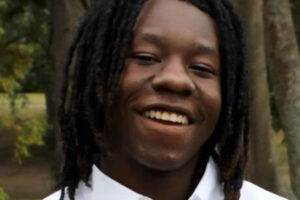Mississippi could ban digital books that state law defines as “sexually oriented,” including books with depictions of “homosexuality” and “lesbianism,” from public and school libraries after a majority in the Mississippi House approved an amended version of Senate Bill No. 2346 on Wednesday.
When the Mississippi Senate passed the bill on Feb. 28, it was six pages long and focused on requiring websites where pornography makes up more than one-third of the content to implement an age-verification system. When the legislation reached the House, its Judiciary B Committee amended it, expanding it to also include bans on “obscene” and “sexually oriented” digital materials in libraries. It does not include physical books.
The bill prohibits public-school libraries for K-12 students and public libraries that serve adults and children alike from contracting with vendors for “digital or online resources” that violate the State’s pre-existing legal definition of “sexually oriented materials.”
The bill points to Mississippi Code Section 97-5-27, which says that “any material is sexually oriented if the material contains representations or descriptions, actual or simulated, of masturbation, sodomy, excretory functions, lewed exhibition of the genitals or female breasts, sadomasochistic abuse (for the purpose of sexual stimulation or gratification), homosexuality, lesbianism, beastiality, sexual intercourse, or physical contact with a person’s clothed or unclothed genitals, pubic area, buttocks, or the breast or breasts of a female for the purpose of sexual stimulation, gratification or perversion.”
‘It’s Not Limited To Just Minors’
House Judiciary B Committee Chairman Rep. Nick Bain, R-Corinth, introduced the amended Senate Bill No. 2346 on the floor Wednesday. He told fellow lawmakers that the goal of the legislation is “to protect minors from sexually illicit materials.” After his explanation, though, Rep. Shanda Yates, I-Jackson, rose to question the bill’s contents.
“Will the gentleman yield?” she said.
“I’m reluctant to,” Bain said. “But I will.”
Yates pointed him to Section 8 of the bill, noting that it prohibits “sexually oriented” materials from public libraries and, unlike Section 7, which focused on K-12 schools, includes “no age limitation.”
“So it’s not limited just to minors,” she continued. “It specifically says that any books that depict or deal with matters of sex or materials that are sexually oriented, and these are digital books, so something for your Kindle would be prohibited. So we would be banning any book that references sex for an adult in all public libraries in any digital format.”
Bain stammered. “I think it also makes reference—but be that as it may, the intent is for it to be against minors.” He noted that the bill will go to conference, where House and Senate lawmakers can hammer out the details. “We can look at that going forward, (but) the intent is for it to be for minors, but I think there’s language in there somewhere, I don’t see it—”
“It’s not in there,” Yates said.
The chairman assured her that lawmakers would “fix it in conference” to ensure the prohibitions do not apply to adults.
“It is the intent to prohibit or protect children from seeing this,” Bain said. “It is not the intent to outlaw things such as ‘The Scarlet Letter’ or—”
“Ernest Hemingway or ‘The Canterbury Tales’ or ‘Dracula,’ or ‘50 Shades of Grey’?” Yates offered.
Bain noted that the bill’s text additionally defines obscene materials as those without “literary or artistic value.”
“I don’t know that ‘50 Shades of Grey’ has any artistic value, but I think an adult should be able to read it if they want,” Yates replied, referring to the erotic adult book series depicting a relationship between a man and woman who engage in sadomasochism together.
“I don’t know,” Bain said. “I’ll take your word for that. But I think the intent is to keep it out of the reach of children. And I don’t think we need to throw common sense out and the baby out with the bath water. It’s just limiting access, making stuff harder for kids to get.”
The House passed the bill on an 83-29 vote. Several lawmakers changed their vote on Thursday morning, though, changing the final vote to 82-32. The legislation includes a reverse repealer, which will force lawmakers in both chambers to make additional changes before sending it to the governor’s desk, or else it will stand repealed before it takes effect.
During discussion on the floor, Bain did not mention the fact that the bill uses an old law’s definition of “sexually oriented” that includes “homosexuality” and “lesbianism” to define its prohibitions, nor did any other member bring it up.
‘Pretty Sure We Just Banned The Bible’
The House previously passed its own bill, House Bill 1341, with most of the same language now in S.B. 2346 on Feb. 2, but that bill died in committee in the Senate on Feb. 28. That bill, whose principal author was House Speaker Philip Gunn, included the same definition of “sexually oriented” materials as the House’s amended S.B. 2346.
Reached for comment after the House finished voting on Wednesday, Rep. Yates explained that, when she and many other lawmakers voted on the earlier bill in February, they thought the overly broad definitions of prohibited sexual material had been removed.
“After it passed, we realized those definitions had not been updated, and we had literally just banned God only knows how many books about how many things, which was not why the majority of us voted yes on that bill,” she said.
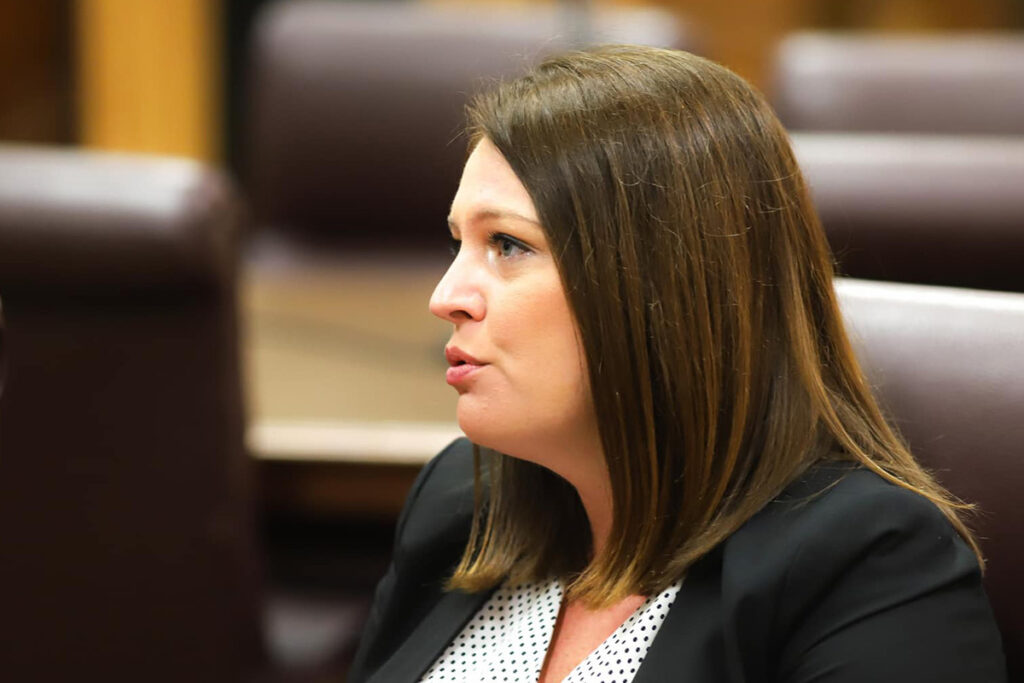
Yates spoke with Bain after catching the mistake she and others had made. “I said I’m pretty sure we just banned the Bible,” she recalled. The problem seemed solved when the bill died in the Senate, only to resurface again when the House Judiciary B Committee’s amendment inserted the same language into Senate Bill 2346.
Yates said she believes Bain when he says he will fix issues with the bill in conference, and attributed its flaws to sloppiness.
“I’m totally OK keeping porn away from kids, but the bill we passed does way more than that and that is not what the majority of us who voted for that original bill thought we were doing,” Yates said.
By press time, Bain had not responded to a request for comment for this story.
On Wednesday, the Senate passed House Bill 1315, including age-verification requirements for online porn, but without the amended S.B. 2346’s bans on materials in public libraries for all ages.
“Young children can have access to databases that discuss how to have sex, how to use dating apps, fifty four best sex positions, lots of things that small children should not be able to get access to,” Sen. Angela Burks Hill explained as she introduced that bill on the Senate floor.
Lawmakers in both chambers will likely have to reconcile the differences between H.B. 1315 and S.B. 2346 in conference.
‘Kids Need To See Themselves Represented’
After the House voted on Wednesday, Human Rights Campaign Mississippi Executive Director Rob Hill told the Mississippi Free Press that he has concerns about “any attempt to ban information for young people.”
“I think that for youth, young people, the schools, the libraries should be a safe place, and any attempt to scale back crucial information, certainly around sexual orientation, is dangerous,” he said. “Kids need to see themselves represented in materials, and these attempts don’t make school libraries safer; they make them more harmful, specifically for LGBTQ kids.”
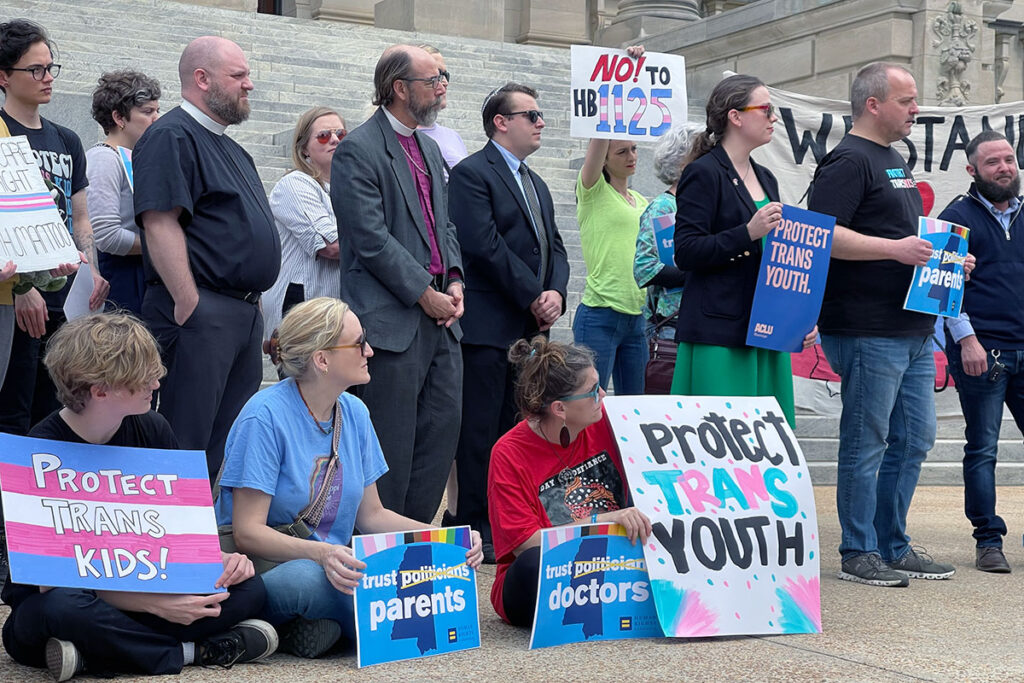
Legislation “singling out sexual orientation, whether it be for gays or lesbians, is certainly intentional and intended to further the stigma that exists for LGBTQ people in general,” Hill continued.
He noted that there has been a national “onslaught” of anti-LGBTQ legislation in state legislatures this year so far.
“In Mississippi, we’re tracking 31 (bills), but the one we were most concerned about was H.B. 1125.” The Legislature passed that bill, which prohibits transgender minors in Mississippi from accessing standard care such as puberty blockers, and Gov. Tate Reeves signed it into law on Feb. 28. In 2021, Reeves signed a law prohibiting transgender public-school students from playing on teams that match their gender identities.
Asked if his organization or affiliates were considering filing a lawsuit to attempt to block that law, Hill said they are “looking at all of the ways that we can potentially lessen the impact of the harmful bill” and are “considering any number of methods to be able make sure trans kids in Mississippi have the care they need.”
Last year, a political effort to purge LGBTQ+ books from the local public library in Ridgeland, Miss., drew national headlines after Nick Judin broke the story in the Mississippi Free Press. School libraries and public libraries have become a flashpoint in national efforts to prohibit books that feature LGBTQ+ characters or content as well as works about racism.


